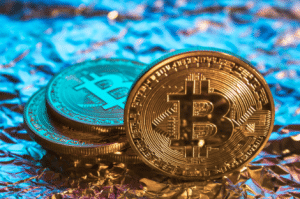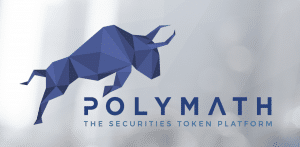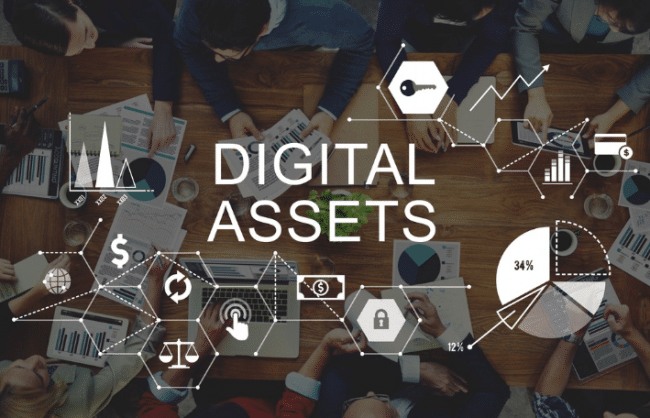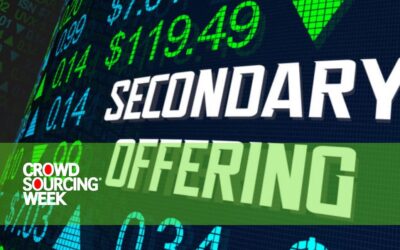Blockchain and other distributed ledger technologies provide a revolutionary way of creating, maintaining, and securing decentralized networks. The emergence of these networks has enabled a whole range of decentralized applications; applications that threaten to disrupt many of the centralized platforms present today. Uber, Facebook, eBay, Airbnb, and even Amazon could be disrupted by platforms that require no third party, no centralized entity to operate. But perhaps no industry has more potential for significant change than finance.
Cryptocurrency, smart contracts, and digital assets have already fundamentally changed the way many people interact with money, manage their wealth, trade on markets, and the invest in assets. These changes extend to the FinTech industry and the manner in which people invest in traditional markets, providing new tools for equities, bonds, futures, and derivatives. But blockchain has also brought entirely new asset classes, with new considerations, and new complications.
Perhaps nothing is more representational of the recent fundamental shift in the world of Fintech than the debate currently raging within legislative branches across the globe. Finance has always been a traditional industry.
- Currency is currency; it is regulated by a central entity, primarily used as a means of exchange.

- Types of assets are clearly defined. Commodities such as gold, oil, or coffee are fungible commercial assets and are entirely different than equity stocks, which represent percentages of companies and entitle the owner to profit shares.
- Bonds are debt securities.
The taxation and regulation surrounding these asset classes are well established. But blockchain, tokens, and DLT’s ability to create “digital scarcity” present entirely new asset classes over which governments are scrambling to define.
The new assets: An entirely new class of assets has emerged thanks to the blockchain. These assets are largely unregulated, easily exchangeable, and wildly volatile. The following are the types of emerging assets:
 Cryptocurrencies: Cryptocurrencies such as Bitcoin, Litecoin, Dash, or Monero are merely distributed currencies. Their intended use is that of a digital exchange of value. While not under the control of any central entity, cryptocurrencies should, logically, be classified, regulated, and taxed similarly to dollars, yen, euros, or any other type of national currency. They are neither commodities nor stocks. Regardless, cryptocurrency values fluctuate with far greater volatility than traditional currencies. As such, they’re commonly used as a method of investing and are subject to capital gains taxes, but different regulation than if they were classified as securities.
Cryptocurrencies: Cryptocurrencies such as Bitcoin, Litecoin, Dash, or Monero are merely distributed currencies. Their intended use is that of a digital exchange of value. While not under the control of any central entity, cryptocurrencies should, logically, be classified, regulated, and taxed similarly to dollars, yen, euros, or any other type of national currency. They are neither commodities nor stocks. Regardless, cryptocurrency values fluctuate with far greater volatility than traditional currencies. As such, they’re commonly used as a method of investing and are subject to capital gains taxes, but different regulation than if they were classified as securities.
Utility Tokens: The regulation regarding utility tokens is enormously convoluted. These assets are tokens which both have an exchange value and an intrinsic utility within decentralized ecosystems. They’re similar to casino chips if you could purchase and sell casino chips on secondary markets. The argument revolves around whether these represent securities. One side argues that they don’t as they constitute no entitlement towards company equity or profit shares. The other side counters that while many of these tokens do have utility within specific ecosystems, these ecosystems are undeveloped and the token is traded merely as a speculative tool, similar to stocks. The recent U.S. SEC announcement was that most utility tokens would remain securities until they achieved some utility within an ecosystem.
Digital Securities: Digital securities are a well-defined asset class. These are merely securities – like stocks – but in  digital form with digital ownership. By digitizing securities, centralized entities are no longer necessary for determining ownership rights. The decentralized ledger maintains a history of the ownership of these securities, allowing people to trade, invest, and transact seamlessly. It’s possible that companies like Apple, Microsoft, and Target could one day digitize their shares. The Polymath network is working to build a platform offering support for digital securities.
digital form with digital ownership. By digitizing securities, centralized entities are no longer necessary for determining ownership rights. The decentralized ledger maintains a history of the ownership of these securities, allowing people to trade, invest, and transact seamlessly. It’s possible that companies like Apple, Microsoft, and Target could one day digitize their shares. The Polymath network is working to build a platform offering support for digital securities.
Digital Commodities: This is a sector that has yet to be realized. However, as digital ownership becomes more of a reality, physical commodities in our world today will be represented by digital assets, maintained on a blockchain. With this technology, gold, diamonds, and oil, among others, could be traded in a decentralized setting.
With the advent of digital assets, exchanges to trade them have also developed. Currently, many of these exchanges are centralized, managed by third parties who take fees for matchmaking and providing liquidity. However, platforms are presently emerging that aim to enable this functionality in a decentralized environment. A decentralized exchange enables a platform where buyers and sellers can match. Smart contracts enable trades without any reliance on a centralized entity. This is not only applicable for simple token or security exchanges, but for more complex financial markets such as derivatives or futures.
Traditional industries, such as banks, are also witnessing both the disruptive and complementary nature of this technology. Startups such as Ripple, as an example, are utilizing blockchain technology to enable seamless international bank transfers.
The intersection of decentralized exchanges, digital ownership, and digital assets not only has the potential to revolutionize the world of finance but also to provide financial access to people previously excluded. The barriers to investment with digital assets are far lower than they are with traditional markets. There is no minimum investment amount. There is no need for accounts with multiple brokerage firms. Even people without bank accounts can purchase, invest, store, and transact with digital currencies. These services provide opportunities for many in disadvantaged parts of the world. One merely needs a phone and internet.
Our world is changing dramatically. As we progress towards further forms of digitization – digital identity, digital ownership, digital assets – today’s institutions will adapt. The internet brought a similar wave of disruption. With blockchain, decentralized exchanges may become the norm. With digital assets, the accessibility and availability of investment opportunities for the world will increase dramatically. These new asset classes will fundamentally shift how people and money interact.
Keeping up with the pace of new trends and developments in the world of the crowd economy and crowdsourcing can be hard. To help, we are assembling global sector-leaders and top practitioners to speak in over 70 sessions at our major global conference in Washington D.C. this October, #CSWGlobal18, and they will share with delegates their latest thoughts, insights and results of recent activities. We have published an Agenda, and ticket registration is open with some time sensitive incentives available. We hope you will be there.






0 Comments